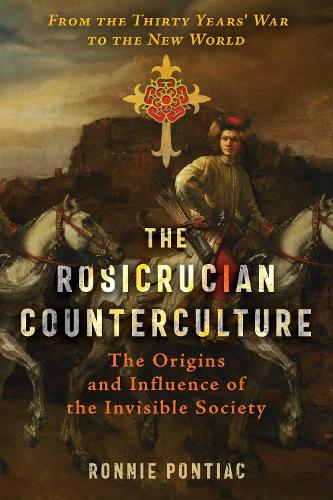
The Rosicrucian Counterculture: The Origins and Influence of the Invisible Society
(Paperback)
Publishing Details
The Rosicrucian Counterculture: The Origins and Influence of the Invisible Society
By (Author) Ronnie Pontiac
Inner Traditions Bear and Company
Inner Traditions Bear and Company
10th February 2026
United States
Classifications
General
Non Fiction
Occult studies / Supernatural studies
Popular beliefs
Secret societies
Physical Properties
Paperback
240
Width 152mm, Height 229mm
227g
Description
A cultural exploration of the esoteric movement and its historical impact and legacy
Examines the Rosicrucian involvement of figures like Rene Descartes, Robert Fludd, John Dee, Elias Ashmole, and the alchemist pirate Prince Rupert of the Rhine
Traces the saga of Rudolf II, Holy Roman Emperor, and his countercultural successors Frederick and Elizabeth, who triggered the Thirty Years War
Shows how Rosicrucianism inspired the English Revolution and explores the Rosicrucianism of John Winthrop the Younger, Connecticuts founder
Since the appearance of Rosicrucian manuscripts in 17th-century Germany, historians have questioned the authorship, intent, and significance of this esoteric movement.
Rosicrucianism was an underground movement whose influence in the early-modern period continues to the present. Ronnie Pontiac traces their origin, looking at the esoteric culture around Holy Roman Emperor Rudolf II and his court, including figures like John Dee, Tycho Brahe, and Rabbi Loew, the legendary creator of the Golem of Prague. Despite occultists fascination with Rudolfs successors, Frederick and Elizabeth, at the start of the Thirty Years Warand Rosicrucian efforts to make Frederick the first Protestant Holy Roman Emperorthe esoteric renaissance in Bohemia was short-lived. However, this wasnt the end of Rosicrucianism as its influence spread far beyond the Holy Roman Empire. Pontiac explores the movements impact on Oliver Cromwell and the English Revolution, as well as individuals such as Robert Fludd, Rene Descartes, Elias Ashmole, Moritz the Learned, Paracelsus, and William Shakespeare. He then details the movements arrival in the New World, including the Rosicrucianism of Connecticuts alchemist governor, John Winthrop the Younger, and what Cotton Mather thought of it. Looking to the present, Pontiac shows how both pop culture and the modern psychedelic counterculture are informed by Rosicrucian ideas.
This book provides important historical context for the origin, development, and spread of the Rosicrucian movement and modern Western occultism in general, showing how the invisible societys countercultural ideals remain alive today.
Author Bio
Ronnie Pontiac worked as Manly P. Halls research assistant for seven years. A producer of award-winning documentaries, he is the author of American Metaphysical Religion and coauthor of The Magic of the Orphic Hymns.
